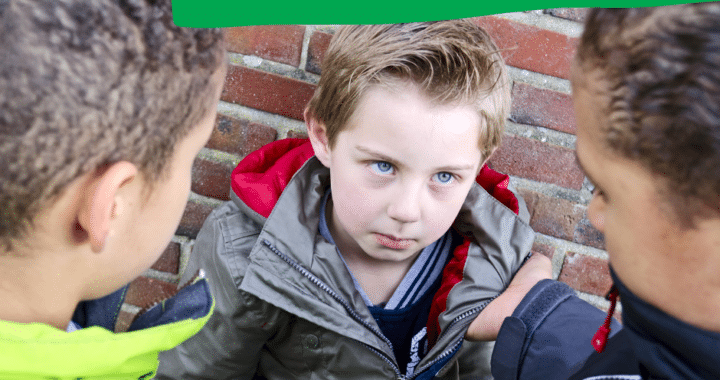What can I do if my child is being bullied?
What can I do if my child is being bullied?
It can be extremely distressing to learn that your child is being bullied. We constantly get asked from parents what they should do. We’ve added a list of things you should do below BUT always consider what you know about your child and the details of the situation to make the best decision for your child. Different approaches and strategies may be necessary for various situations and individual children.
1. Stay Calm & Positive
Listen calmly and get the full story. Encourage your child to talk about what happened. Tell your child that reporting the bullying is okay. Assure your child that it is NOT their fault. Listen in a non-judgmental way about your child and about the other child. Let your kid do the talking. Don’t try to solve the problem. Ask your child: “What happened? How did that make you feel?”
Reassure your child. Many children blame themselves and this can make them feel even worse. Say things like, ‘That sounds really hard to deal with’ or ‘I’m so glad you told me. You should feel safe at school.’ Ask your child what they want to do and what they want you to do when you contact the school.
Your attitude will influence your child. You having a confident, positive and resilient attitude can help to stop bullying from continuing.
It can be upsetting for you to find out your child is being bullied or that your child has been reluctant to tell you. Draw on your own networks to get support for yourself while you are helping your child.
2. Talk to your child about it
Children can be hesitant to talk about their bullying. Many times they don’t want their parents to become involved and are afraid of the consequences if the person who is doing the bullying finds out.
It is important to ask your child what they want to do and also what they want you to do. Helping your child find their own solution is very important. This will help them feel that they have some control over the situation.
Your child may be nervous or reluctant for you to speak to their school. Reassure them that the school would want to know and is there to help them.
Do not advise your child to fight with the other child as fighting (as distinct from defending themselves from a physical attack) can escalate the situation, and your child may be reprimanded for their part in a fight.
3. Contact & Report the Bullying to the School
Make an appointment to see your child’s teacher and if you need to ask to speak to the school principal. Contact the school immediately if you are concerned about your child’s safety. When you contact the school ask the school for a copy of the anti-bullying policy and any information they have on bullying.
Work with your child’s school to resolve the issue by establishing a plan for how the current situation, as well as any future bullying will be addressed. Ask if the school has a counsellor or psychologist available if required or if they can recommend one.
It’s important to know that schools must follow privacy laws and may not be able to tell you everything about any other children involved. These laws also keep you and your child’s information private too.
Keep a record of the school meeting and ways in which you will work together to resolve the issue. If the bullying continues or increases, contact the school. Working together with the school is the best way to help resolve bullying issues.
- Discuss and practice strategies for face-to-face bullying
Many children want to try to deal with the bullying themselves in the first instance. Practise with your child at home so they can use the strategies in situations they find difficult. Give them feedback on if they are getting their message across and coach them until they are feel confident with their skills in:
- Ignoring the person doing the bullying.
- Firmly but calmly telling them to stop and then walking away.
- Pretending you don’t care; act unimpressed or not bothered.
- Moving to somewhere safe.
If your child is being bullied via phone or online, strongly encourage your child to:
- not respond to the message or image,
- save the evidence,
- block or delete the sender,
- check/change your privacy settings
- report the situation to the internet/phone service provider; they can help you block messages or calls
- tell other people—teachers and police if necessary.
Just an important note to remember – if your child has been threatened with violence, you’ve got a crime — it’s time to alert the police.
5. Seek help for your child on how to deal with bullying
A child who has been bullied can be at greater risk than others of being bullied again, even when the bullying has been dealt with. Knowing how to deal with bullying and difficult people at school, at work and throughout life in social situations is an essential life skill.
Give your child the contact details to Kids Helpline 1800 55 1800/ www.kidshelpline.com.au if they ask to talk to someone other than the school, or you don’t feel able to support them. Kids Helpline also has a parent line with trained teams who provide support, information and counselling for parents of children aged 0-18 years.
You can also reach out to us at info@sophiewhitehouse.com for help.







